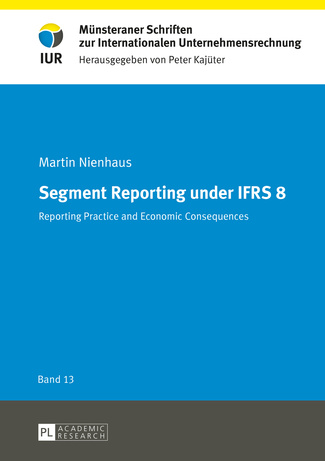Band 13
Martin Nienhaus – Segment reporting under IFRS 8 – Reporting practice and economic consequences
 Segment reporting has been a contentious and important topic in accounting practice and research ever since its first introduction in 1969. The latest major change in segment reporting regulation was the introduction of IFRS 8. This new standard adopted the management approach as segment reporting concept from its US counterpart, SFAS 131. The management approach requires firms to present segmental information “through the management’s eyes”. This concept was heavily criticised during the enforcement in the EU and, until today, several questions regarding the consequences of IFRS 8’s introduction remain unanswered.
Segment reporting has been a contentious and important topic in accounting practice and research ever since its first introduction in 1969. The latest major change in segment reporting regulation was the introduction of IFRS 8. This new standard adopted the management approach as segment reporting concept from its US counterpart, SFAS 131. The management approach requires firms to present segmental information “through the management’s eyes”. This concept was heavily criticised during the enforcement in the EU and, until today, several questions regarding the consequences of IFRS 8’s introduction remain unanswered.
It is unclear, for instance, whether the management approach helps users of financial statements to facilitate better decisions or whether its inherent flexibility and discretion impair the decision usefulness of segment reporting. The IASB points out a substantial research gap in this regard.
Therefore, this study analyses the impact of introducing IFRS 8 on segment reporting practice and its economic consequences. The nature of the research questions requires two different empirical approaches: First, the changes in segment reporting practices are documented based on a content analysis. This lays the foundation for the second step: the analysis of the economic consequences in a difference-in-differences design.
The results show that segment information from the management’s perspective is decision useful and mitigates information asymmetries, reduces the cost of capital and also affects the work of financial analysts. The findings have implications for the IASB, users of financial statements, preparers, auditors and enforcement institutions.
The dissertation thesis has received the following awards:


